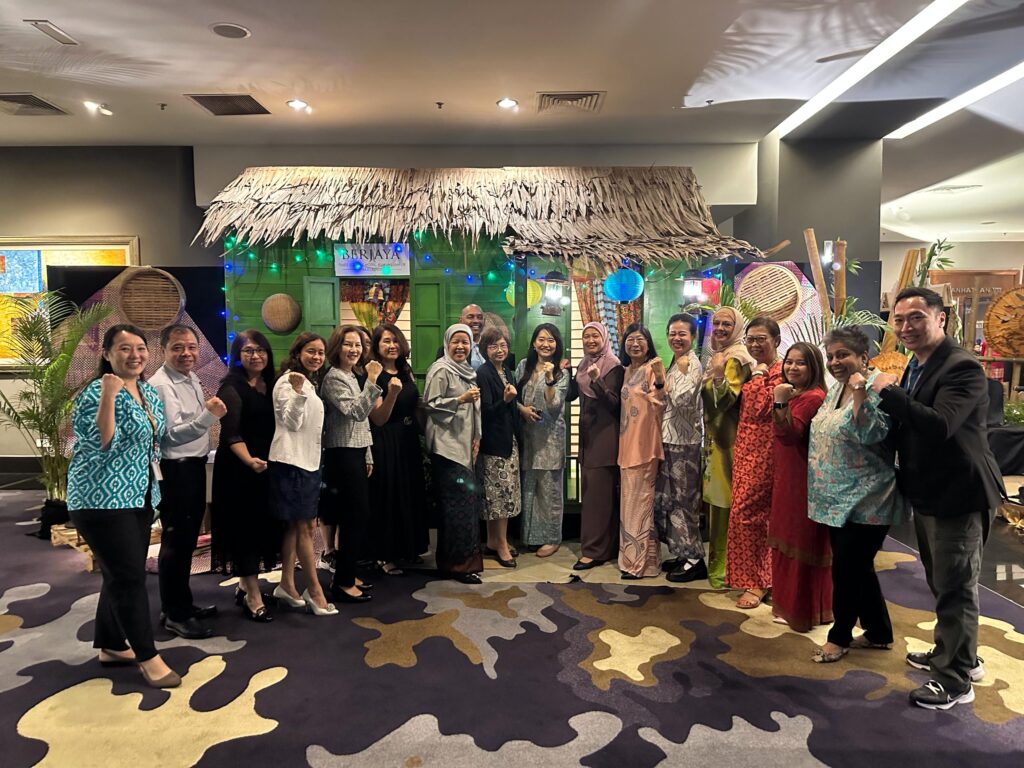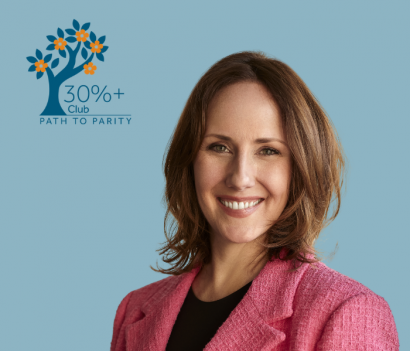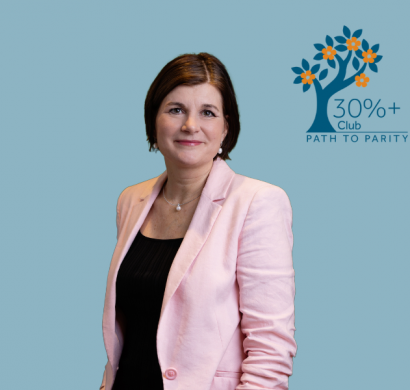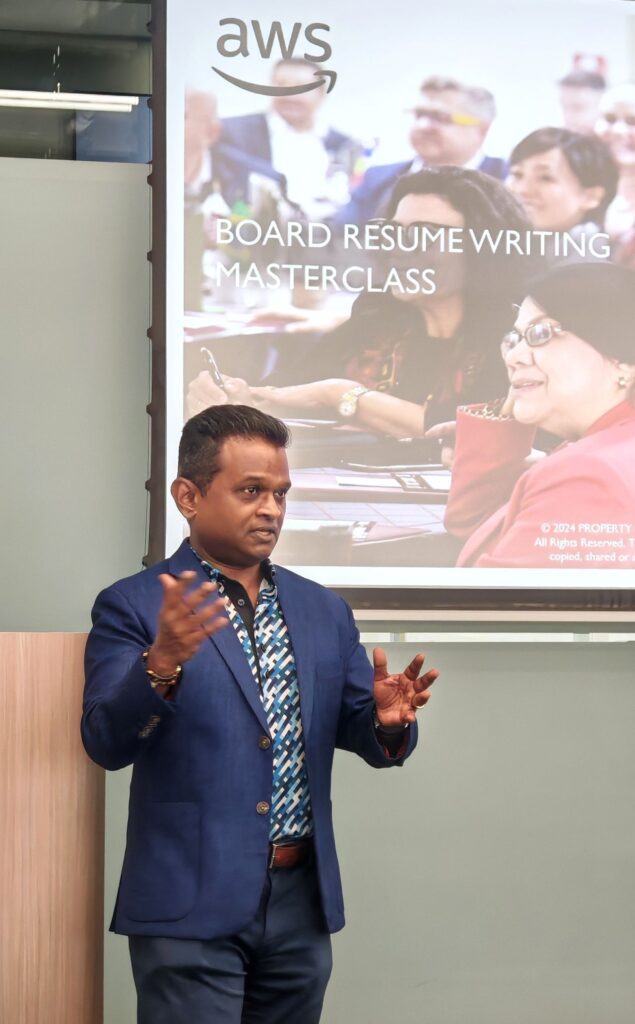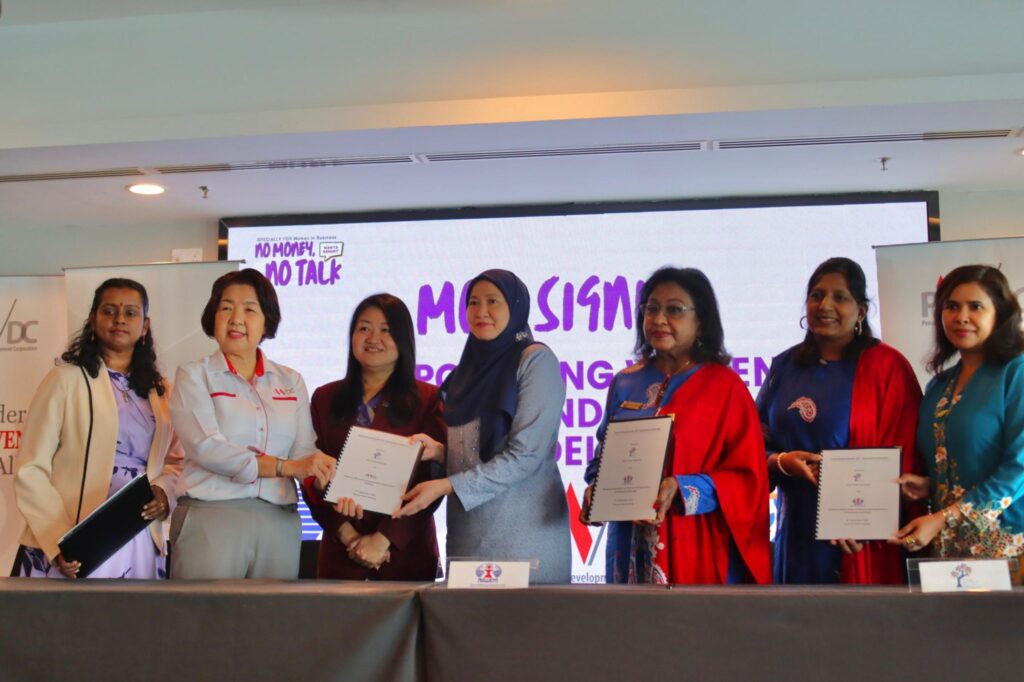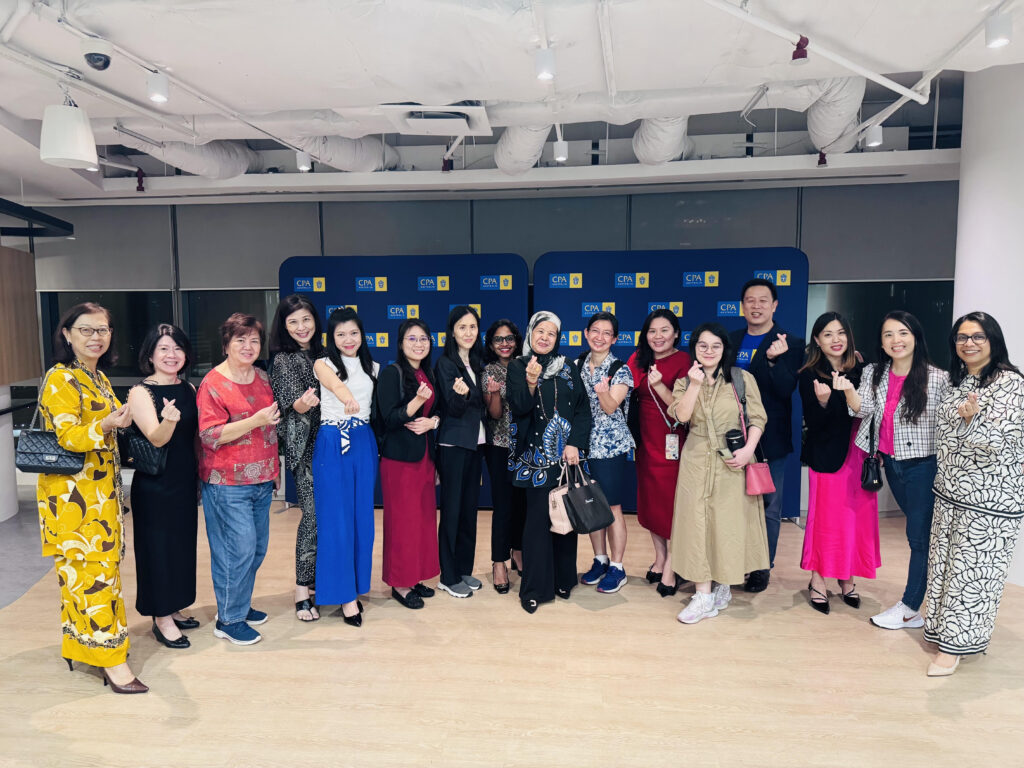
On 11 March 2025, CPA Australia hosted International Women’s Day (IWD), themed Empowered Women: Accelerated Action.
The event provided a fantastic platform for members in the accounting and business sectors to come together, share experiences and network.
As representatives of the 30% Club Malaysia, Activate Pillar Volunteer Janice Lim and Steering Committee Member Frances Po were invited to attend the event. Norlela Baharudin, a CPA Australia member (and also a Steering Committee member helped to boost our numbers).
This event provided an opportunity for the 30% Club team to mingle and engage with CPA Australia members, whilst learning more about their Women in Business initiatives. Our presence created some interests and there were various enquiries posed to us to understand what 30% Club Malaysia stands for.
The event featured an engaging panel discussion, moderated by Narita Naziree (Maybank), with three distinguished women panelists Lee Ai Vin (Sapura Energy Bhd), Rachel Hong (Jollibee Malaysia) and Cariessa Leow (L’Oreal).
The panel members provided insightful perspectives on navigating their personal career journeys and overcoming challenges in the business world.
The audience posed several thought-provoking questions that encouraged further dialogue and sharing.
Two questions which particularly stood out:
1. If you had the chance to meet any celebrity
mentor, who would it be?
2. What steps can an individual take to break the
glass ceiling?
After the panel session concluded, we partook in a Buka Puasa as demonstration of Malaysian cultural diversity during the fasting month.
A special thank you goes to the team at CPA Australia for their kind hospitality, particularly Marieanne Morris (Country Leader), Yip Kit Weng (President), and Surin Segar (Immediate Past President). The event was a wonderful opportunity to celebrate the achievements of women and to continue working toward gender balance in leadership.
30% Club Malaysia looks forward to welcome CPA Australia as a Corporate Advocate in the future.

